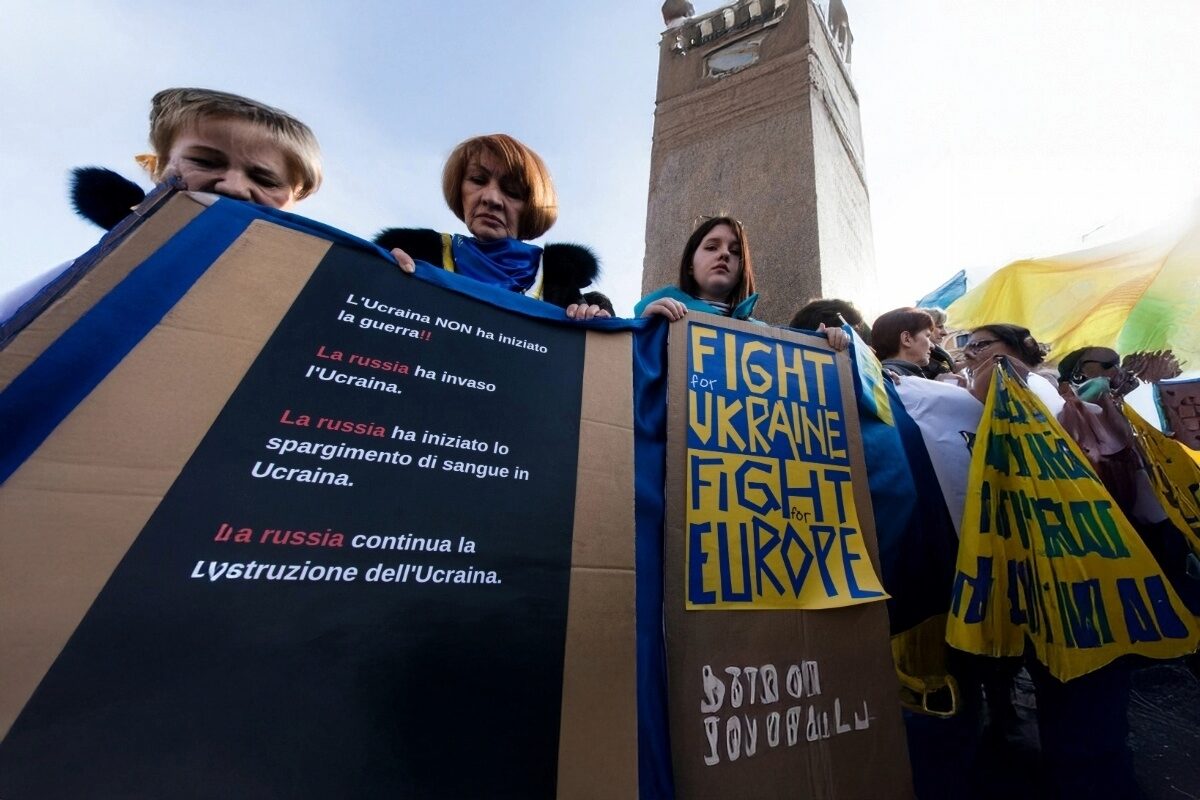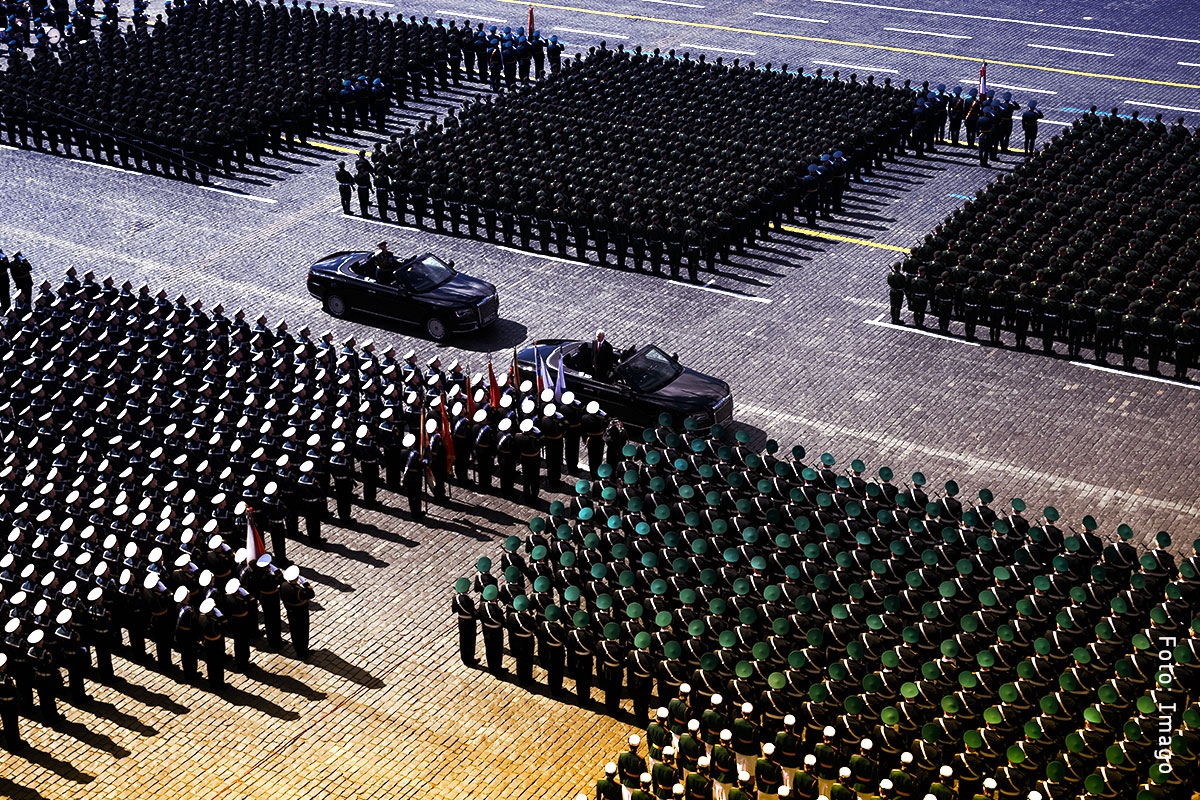Seizing Russian Assets: Too Little, But Not Too Late

Ukraine and some of her allies have been campaigning to use the frozen 200 billion dollars of Russian Central Bank money held at Euroclear in Belgium for aid to Kyiv, but there are legal and political reservations. Patrick Heinemann explains, why the money can and should be used swiftly.
Germany is doing a lot. But not enough. And that is what matters. German foreign and security policy makers are masterful at explaining to themselves and their partners what is supposedly impossible. However, they rarely take their own initiatives. What applies to military aid to Ukraine applies all the more to the handling of Russian state assets. Some 300 billion euros of Russian Central Bank currency reserves are currently held in accounts in the G7 countries. This money has been frozen for around two years due to sanctions and the Kremlin has no access to it. The lion’s share, around 200 billion, is held by the ‘Euroclear’ clearing house in Belgium.
There is no evidence that Russia will pay reperations
According to the principles of state responsibility under international law, the Russian Federation already owes Ukraine reparations for the damage caused by its war of aggression. According to a World Bank estimate, these damages amount to 486 billion dollars as of 31 December 2023. Thus, Ukraine’s claim to reparations already exists irrespective of any special regulations on this in a later peace treaty with the Russian Federation.
Currently there is no evidence for this at all: Russia is waging war with the aim of eradicating Ukraine as a subject of international law. The Kremlin is currently moving closer to this goal again because the West’s support for Ukraine’s fight for freedom has not been strategic, i.e. not sustainable and long-term. There is no apparent forum in which Ukraine could assert its claim. In particular, the UN Security Council, which authoritatively regulated reparations by Iraq for Kuwait in the early 1990s, is no option because of Russia’s veto.
As is so often the case, international law is therefore dependent on decentralised enforcement, i.e. relations between states. For the people of Ukraine, it is vital that their claim is realised soon and not just at some future point. For Ukraine, justice denied is justice delayed means at worst: to be or not to be.
The legal reservations raised against the confiscation of Russian central bank assets are ultimately not convincing. We keep hearing that the West insists on a rules-based order and therefore cannot simply break the rules itself. This supposed argument does not explain why the confiscation of Russian Central Bank assets should be illegal, but simply presupposes this. The starting point is that sovereign states are only restricted in their ability to act towards each other by positive prohibitions under international law and are otherwise fundamentally free (the Lotus principle). The right question is therefore not what legal basis is supposedly required, but the other way round: is confiscation prohibited?
The idea that Russian state assets are sacrosanct and untouchable is absurd
The idea that Russian state assets are sacrosanct and untouchable is quite absurd: after all, the West has frozen them for more than two years. Whether the principle of state immunity, which the Russian Central Bank assets enjoy, only protects against judicial and not legislative acts, is judged differently in international law. In any case, this principle does not apply absolutely, especially with regard to a crime of aggression. Leading international lawyers, including Christian J. Tams, who represents Germany at the ICJ in the Nicaragua Case, have already explained in an expert opinion that confiscation in favour of Ukraine is very justifiable as a permissible countermeasure under international law. In particular, the international law experts show that the principle that countermeasures must be reversible does not apply absolutely. In any case, such a step would merely pay off existing debts, so that legally the Russian Federation would not suffer any damage as a result. German constitutional law also does not preclude the confiscation of the Central Bank’s assets, particularly because the fundamental rights of Germany’s Basic Law protect neither the Russian Central Bank nor the Russian state.
The owner is entitled to the benefits of a right in the same way as the property itself
Actually there is much to suggest that the West has already more or less recognised the permissibility of this measure: the European Union now at least wants to transfer the income generated by the frozen Russian state assets to Ukraine. However, according to general legal principles, the owner is entitled to the benefits of a right in the same way as the property itself (Omnis fructus non iure seminis, sed iure soli percipitur, D. 22,1,25 pr.; see today, for example, § 953 BGB). Anyone who believes that it is permissible under international law to withdraw the proceeds of Russia’s assets and transfer them to Ukraine must explain why the same cannot be done with the assets themselves. Preparations for this are most advanced in the United States: at the end of April, Congress not only approved aid for Ukraine totalling around 60 billion US dollars, but also created a mechanism that allows the President to confiscate Russian currency reserves held in the US and allocate them to a Ukraine fund, whose money is to be used for reconstruction.
This gives the impression that the legal arguments are merely a pretext and that the German government’s real concerns are centred on the economic consequences and Russia’s possible reactions. In particular, it is feared that other countries will withdraw their reserves from Western currency areas for fear of further confiscation. However, the former head of the World Bank, Robert B. Zoellick, has long warned against overestimating this risk. This is because non-Western currencies such as the Chinese yuan are not nearly as attractive: a lack of convertibility and state intervention make them unsuitable as a currency reserve. Moreover, if the West acts together, there is no need to fear capital flight between the various Western currency areas.
What remains is the fear of a possible Russian reaction: this raises the fundamental question of the extent to which this can be allowed to guide action if the Kremlin is not to be left in charge all the time. There are no Western currency reserves in Russia, so that the regime there could at best help itself to private Western companies — which would be illegal for a variety of reasons according to any reasonable opinion. Moreover, the Kremlin is already expropriating Western companies on a large scale.
If the frozen money would be given back to Russia, any hope of making the Kremlin liable for its crime of aggression would be lost
Finally, it is more than doubtful that the frozen assets could be used as leverage to bring Russia to the negotiating table. Russian currency reserves have already been frozen for two years without Russia showing any serious willingness to negotiate. If the frozen money would be given back to Russia, any hope of making the Kremlin liable for its crime of aggression would be lost. That would be a fatal signal. After all, a rules-based order demands the opposite: War must not pay off for the aggressor.
The current debate focuses on the idea of making around 50 billion dollars available to Ukraine in a timely manner and securing a corresponding loan via the future income from the assets frozen in Belgium. Whatever the solution looks like: Creativity and legitimacy are required. Germany should stop standing on the brakes and contribute its own ideas to the debate.
Patrick Heinemann is a lawyer specialising in administrative law and a partner at the law firm Bender Harrer Krevet in Freiburg, Germany. His award-winning doctoral thesis on the legal history of the German Reichswehr was published as a book in 2017. Patrick is a reserve officer in the Bundeswehr and a member of the German Federal Bar’s constitutional committee. He is a regular contributor to Verfassungsblog.de and Legal Tribune Online (lto.de) and tweets at @P_O_Heinemann.
![]()
Did you like this article? If yes, you can support the independent editorial work and journalism of LibMod via a simple donation tool.
Donate via PayPal
![]()
We are recognized as a non-profit organization, accordingly donations are tax deductible. For a donation receipt (necessary for an amount over 200 EUR), please send your address data to finanzen@libmod.de
Related topics
order Newsletter
Stay tuned with our regular newsletter about all our relevant subjects.






